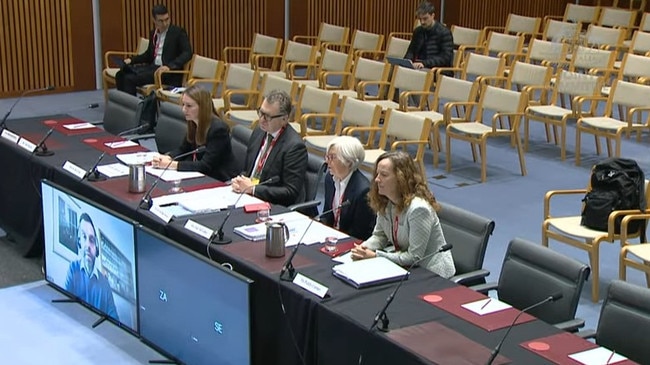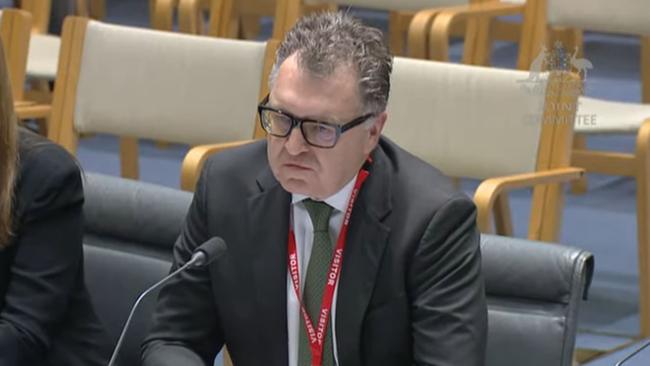Ex-PwC CEO backs regulation, as firm refuses to reveal key tax scandal consulting deal
Tom Seymour sees a ‘clear public interest’ argument in regulating the big four firms, as a senator regards PwC’s refusal to release CEO Kevin Burrowes’ pay deal as ‘ironic’.

PwC Australia’s former chief executive Tom Seymour has backed regulation of the consulting sector, saying professional services firms are likely to be broken up amid public scrutiny of the industry.
His comments came as PwC appointed another independent director in a move it touted as strengthening “the firm’s governance, accountability and culture”, despite refusing to divulge key details of its current CEO’s previously secret consulting deal.
Answering questions in federal parliament, Mr Seymour said the big four firms PwC, KPMG, EY, and Deloitte should be regulated because of their systemic importance for Australia.
Mr Seymour, who ran PwC for almost three years, said there was a “clear public interest” argument for regulating the big consulting firms, but smaller partnerships should not face the same treatment. The former PwC boss, who quit in the wake of a damaging tax scandal at the firm, said the “existing public company regime” would be an appropriate regulatory scheme for the big four firms “as opposed to attempting to design a ‘purpose-built’ system”.
“At least at a conceptual level this would appear to have the benefit of applying a world-class regime that already exists and is well thought-out, which will no doubt create efficiencies for government and avoid the need to create new regulatory bodies,” he said.
“One could also seek to carve out elements of this existing regime that were clearly not applicable to a private enterprise – for example, elements of the regulatory regime that relate to third-party capital.”
Mr Seymour said the big four firms audit and tax work was already regulated by various bodies, but “their broad system-wide impact creates a bigger and somewhat unique public interest element”.
“In my view it is this scope of services element of the large firms that is more relevant than the size of the firm in determining the scope and extent of regulatory oversight,” Mr Seymour said.
“A clear example would be the work done around preparing for and responding to major cyber risks. Whether that advice is given to private telecommunications companies, major infrastructure businesses or state and federal governments, it is clearly of critical importance to the Australian community.”

Mr Seymour’s responses were released following his recent appearance before the parliamentary joint committee on corporations and financial services. Mr Seymour has not spoken publicly since stepping down from the CEO role.
The career consultant said it was highly likely the big four firms would be broken up in coming years – a step that has been recommended by various regulators and industry figures.
However, Mr Seymour said there were “practical challenges” to any mooted split.
The professional services sector has moved to head off criticism of its model, with KPMG, EY and Deloitte trumpeting their independent governance arrangements.
On Monday PwC announced it would appoint a third independent non-executive director to its 10-seat governance board, with corporate veteran Carmel Mulhern joining the audit and consulting firm’s leadership.
Ms Mulhern joins John Green and Lisa Chung, whose appointments were announced on August 1. Mr Green said Ms Mulhern had “experience working with some of Australia’s biggest and most highly regulated businesses”. She starts on September 1.
PwC said Ms Mulhern’s appointment marked the 36th step in its 47-point action plan announced in September last year.
PwC has faced criticism over its tax practice’s misuse of confidential government briefings.

This led to Mr Seymour being replaced as CEO by PwC international partner Kevin Burrowes.
Mr Burrowes recently revealed he was receiving a $1.2m top-up from PwC International, in addition to his $2.8m pay packet, for services related to the tax scandal. Mr Burrowes is consulting to “20-30 people” over the tax scandal.
However, in response to questions from the parliamentary committee, PwC refused to reveal the nature of Mr Burrowes’ deal with the global arm of the firm.
“The services arrangement … is subject to confidentiality arrangements which would preclude them being provided to the committee on a voluntary basis,” PwC said.
PwC confirmed to parliament that Mr Burrowes only told other partners he was receiving the $1.2m top-up payment for his consulting deal in a video call on June 26, almost a year after taking on the top job at the firm.
The firm also revealed Mr Burrowes did not tell PwC Australia’s governance board about his international top-up at a meeting on June 27, 2023, where his Australian pay was discussed.
PwC said “the specifics of the arrangements with the global network were not discussed” at the meeting, but pointed to minutes from the meeting that said “there was considerable discussion about the proposed terms of Kevin Burrowes’ admission, including overall remuneration arrangements”.

Labor senator Deborah O’Neill said PwC’s response “demonstrates that despite what current leadership may claim, the firm remains lacking in any genuine commitment to transparency or accountability”.
“PwC’s claims of confidentiality over information requested by the parliament are absurd, considering that it is the firm itself that is the decision maker over what is deemed confidential,” she said. “It is ironic for a firm that stole confidential Australian government information to repeatedly claim confidentiality as a means of obstructing investigation into its own wrongdoing.”
PwC also confirmed it first told the global arm of the firm about the Tax Practitioners Board’s investigation into the tax scandal “in or about May 2021” but only provided a briefing on the matter on January 24 last year, months after the former head of international tax Peter Collins was banned by the TPB.






To join the conversation, please log in. Don't have an account? Register
Join the conversation, you are commenting as Logout